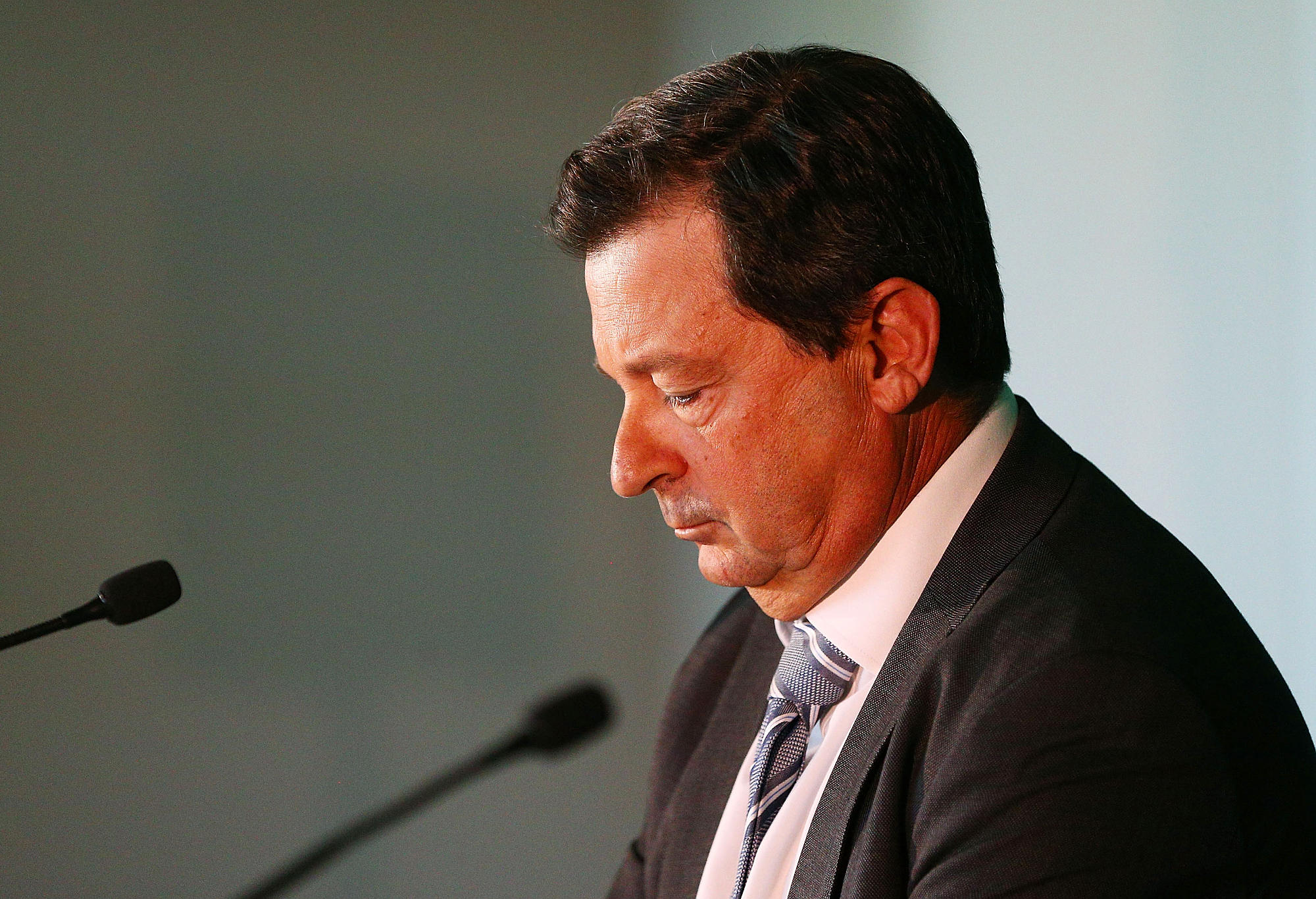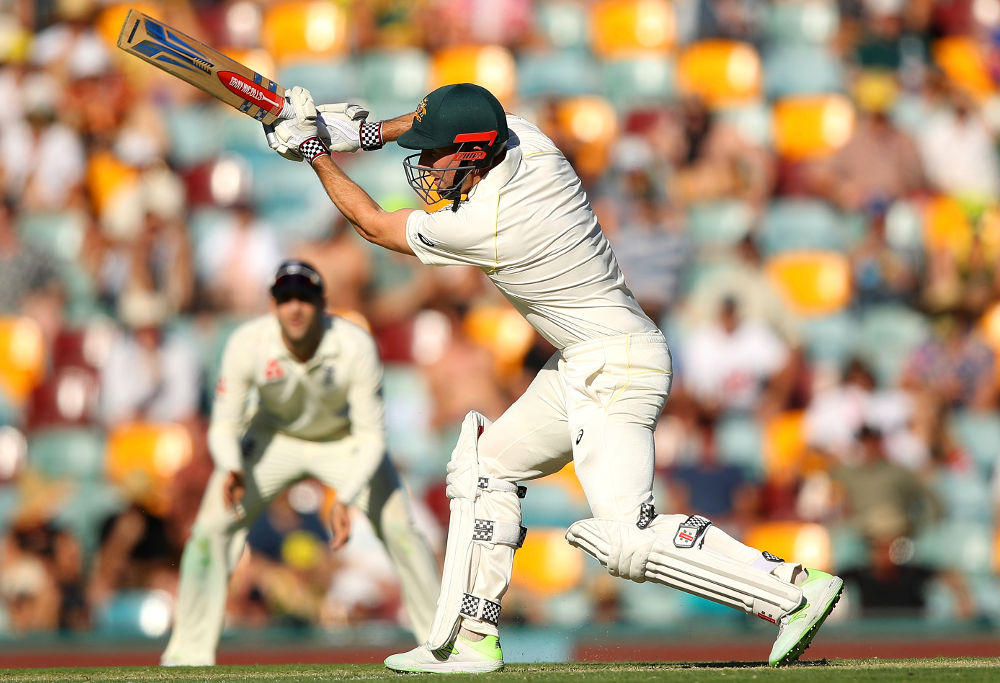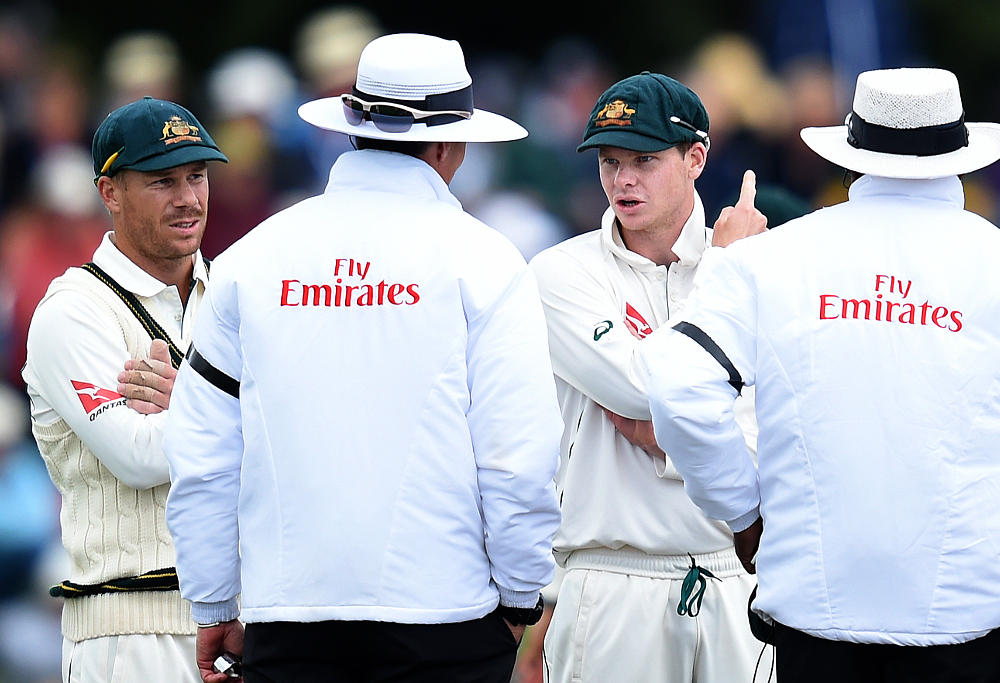It’s the first week of November, the mercury has stuck its nose just above the 30-degree mark for the first time in yonks, and the smell of freshly cut grass is being wonderfully complemented by the warbling sounds of petrol-powered cricket rollers.
Yes, if it wasn’t already clear that cricket season is here, then climbing into the ABC Grandstand commentary box for Wednesday night’s Prime Minister’s XI match made it so.
And what an intriguing season we in Australia have ahead of us.
The fallout from the Ethics Centre Organisational Review into cultural, organisational and governance factors within Cricket Australia continues, with Cricket Australia Chairman David Peever reluctantly standing down on Thursday.
When the report was released on Monday, Peever was resolute that Cricket Australia accept its share of responsibility for the events that led to the infamous ball-tampering incident in South Africa last March. Resolute, that is, right up until the point where it was mentioned that probably includes him taking responsibility himself.
Peever, it seemed from his press conference performance, was content that Cricket Australia’s share of that responsibility was superseded by that of Steve Smith, David Warner, and Cameron Bancroft.

David Peever resigns. (Photo: Michael Dodge/Getty Images)
The wording of the Cricket Australia release about Peever’s decision made it sound like Peever fell on his sword. Though the fact Peever wasn’t actually quoted in a release about his resignation makes it pretty obvious that the sword wound wasn’t exactly self-inflicted.
And that all makes me wonder how Peever would have fared under a curious recommendation from The Ethics Centre around the selection of the Australian team.
The 41st of 42 recommendations stated, simply, that:
“Selectors be required to take account of a player’s character as well as their skills as a cricketer when making a selection.”
This was already in play, according the current status listed under the recommendation, but nevertheless, Cricket Australia’s response was that they would “…review its selection policy, with a heightened emphasis on a player’s character and behaviour in line with the Players’ Pact.”
Of course, we’ve heard this kind of suggestion before, with new Australian men’s coach Justin Langer making his first mutterings about ‘character over cover drives’ when he first took the helm of Western Australian cricket back in 2012.
But Langer is also a disciple of the ‘runs are a batsman’s currency’ mantra, which he used most recently to explain Shaun Marsh’s then-likely retention in the Australian one-day side for the three-match ODI series against South Africa kicking off in Perth this Sunday.
“[Marsh] has obviously had a poor series and he knows that,” Langer said after the thumping second Test defeat to Pakistan in the UAE last month.
“You can see it in his face he knows he’s had a poor series. So then you get the balancing act right as a selector.
“On merit he has to play the one-dayers; in his last five one day internationals for Australia, he’s scored two hundreds. You’ve got to be fair, you’ve got to be fair and reward people for performance.
“On the flipside of that, by playing the one-dayers then he might not play shield cricket.
“But having said all that, runs are the currency of value. Whether you’re making them in T20 cricket or one day cricket or Sheffield Shield cricket or Test cricket. The only currency of value are runs. That’s just the truth of it.”
All runs are equal. But some runs are more equal than others, if you’re a good bloke. I think that’s the gist of it.

Shaun Marsh. Good bloke. Occasional cricketer. (Photo by Cameron Spencer/Getty Images)
Australian cricket – and in particular Australian batting – is in a really delicate position going into this summer, and it’s a position that almost certainly has to put the ‘no dickheads’ policy to the test in the very near future.
It’s all very admirable to assemble a team that is harmonious and unified in all respects. A team worth more as a collective than the sum of its parts, if you will. On that front, the idea of placing “a heightened emphasis on a player’s character and behaviour” over ability or, you know, actual form, is a wonderful theory on paper.
But theories tend to have trouble handling reverse swing. Theories can be brought undone by even just garden variety bowling plans. Theories won’t help avoid the follow-on.
Australian cricket really doesn’t have the luxury of such theories. If they were winning everything and beating everyone everywhere, then sure, the character of the individuals and the way they go about the game becomes something that is more important.
Australia’s only currency this summer is going to be results, if we’re honest. Cover drives are going to be important, because good form is going to be crucial for playing good – and hopefully successful – cricket.
The character of the team and the individuals is already under the microscope; watch for the headlines on Monday if there’s even the slightest hint of cross words exchanged with the South Africans on Sunday.

Australian captain Steve Smith chatting to the umpires. (AAP Image/Dave Hunt)
And while that’s perfectly understandable, given the magnitude of the hole Australian cricket is having to climb out of this summer, ‘good character’ isn’t going really going to help if the losses start mounting at home.
Australia needs its best-performed (and not suspended) players on the field this season. Character is a nice-to-have, but a good bloke out of form is still a bloke out of form.
Consider their character, by all means. But don’t ignore their runs for the sake of it.































































































